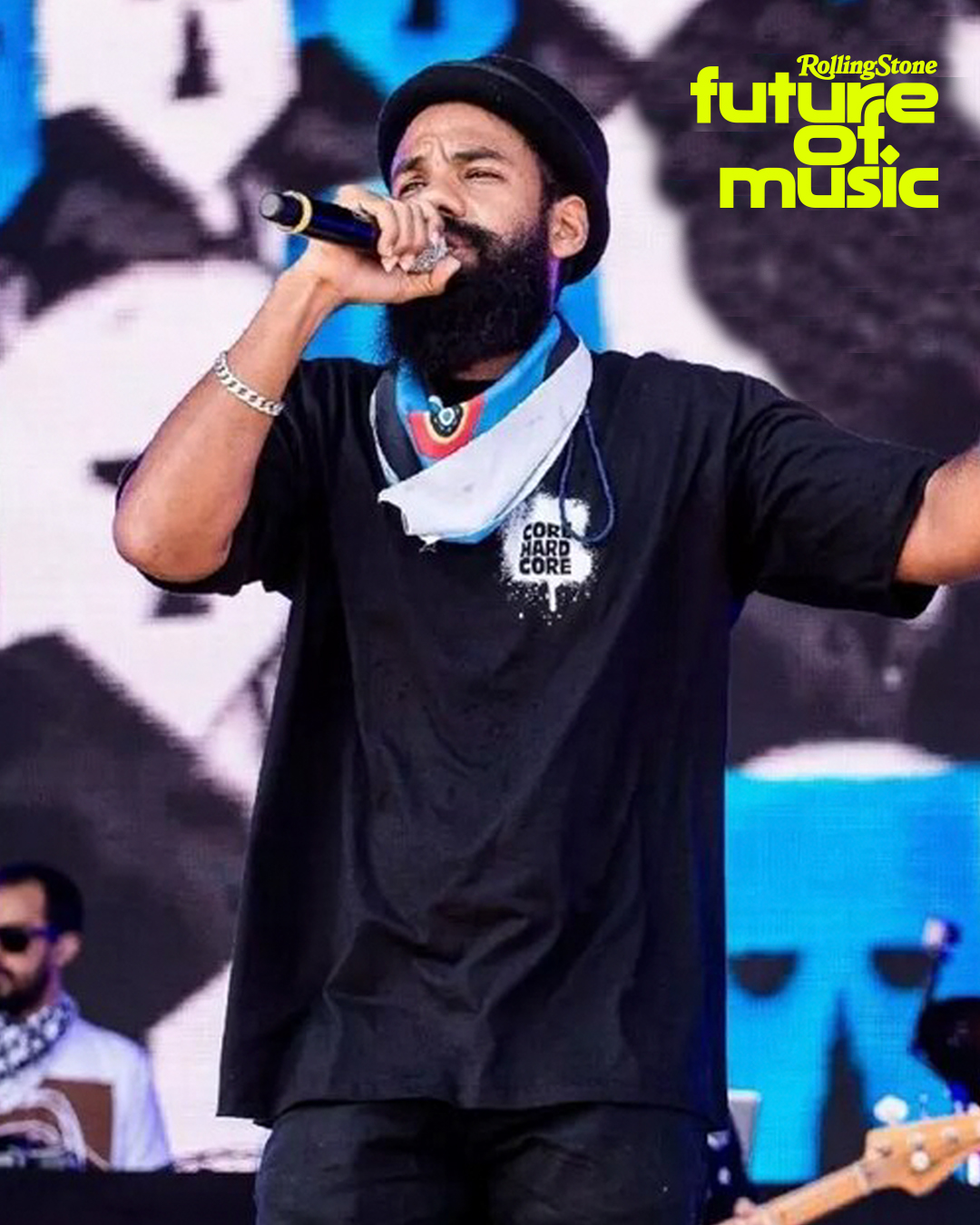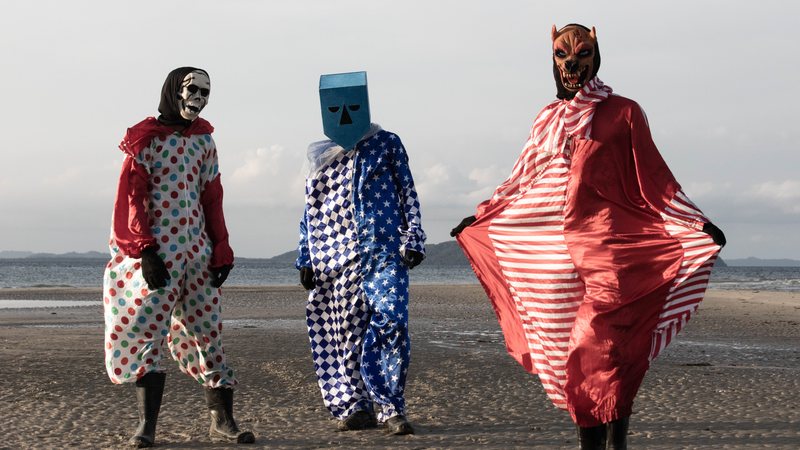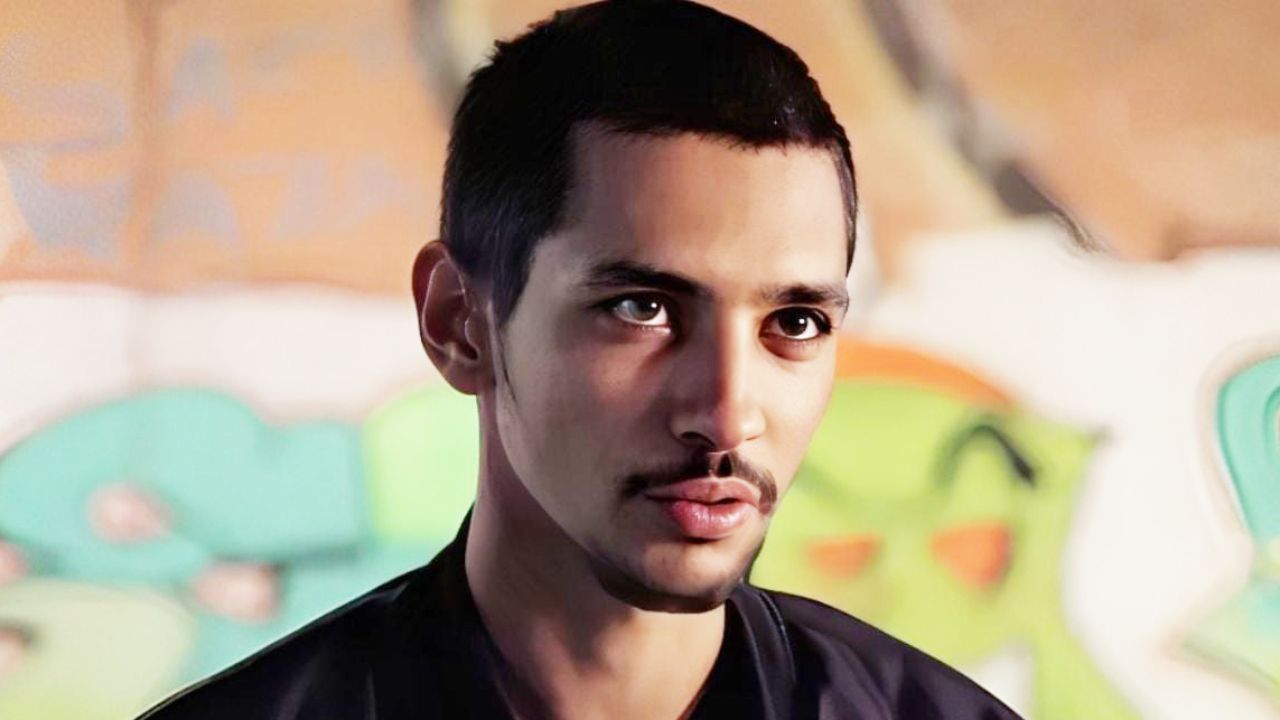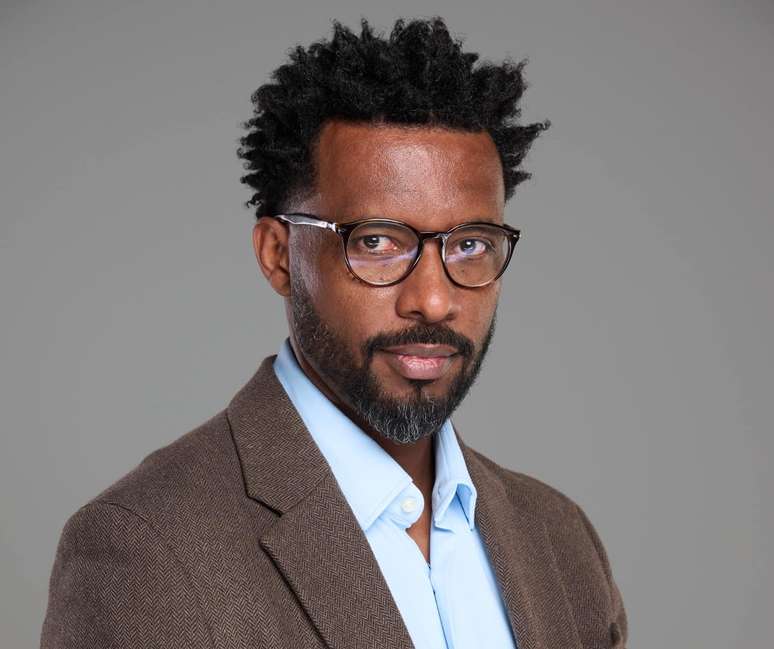To sew a patchwork quilt with diverse musical and cultural influences, BaianaSystem studies the past, future and present to reach new heights
Like a pirate ship, BaianaSystem arrived by surprise and, over a 15-year career, conquered more and more seas with heavy artillery. In this case, there are oceans of audiences crossed by the vast musical repertoire, full of cultural and sound influences, whether on the road or in the studios.

The crew also went through an internal and sound revolution. Starting from the exploration of possibilities of the Bahian guitar, Russian Passapusso (voice), Claudia Manzo (voice), Roberto Barreto (Bahian guitar), SekoBass (low), João Meirelles (beats, synths and programming), Junix 11 (guitar), conductor Ubiratan Marques (piano and synths), Ícaro Sá (percussion) and Filipe Cartaxo (visual design and images of the show) realized how, in fact, “Baiana” represents the culture of Bahia and “System” would be the social, spiritual and aesthetic system of image. “These relationships all started to take shape more strongly within our structure,” Passapusso told Rolling Stone Brazil.
When it emerged, the band came into the minimalist world and as an instrumental project, which always loved playing on top of trucks, the famous electric trios. The greeting with instrumental music has always been there, so much so that several songs give the same emphasis to the sound and to Passapusso’s vocals.
“We come with masters like Ramiro Mussoto, Letieres Leite… this crop of orchestras, like the Orkestra Rumpilezz”, he stated. “We are children of these relationships. The reggae samba itself with the drums, where the guys echo their voices. The very structure of the Bahian guitar, played in electric trios, and here comes Moraes Moreira understanding how to dialogue with the Bahian guitar.”
Natural from Feira de Santana, the singer and frontman defined the group as a patchwork quilt, because the members are part of the whole world, not just one continent or country. Of course, this concept also migrates to the band’s sound, which covers samba-reggae, ska, MPB, afrobeat, among others.
In fact, it is not rock, samba, rap, reggae, Latin music and salsa, but it has all these musical genres in its warehouse. According to the singer, the band has more than it is. It is with this thought that the musicians shape the identity of BaianaSystem, which also combines other geographic, social and spiritual references as a compositional tool.
“We come from Salvador, a very diasporic city, which receives a lot of things… it is founded through this more urban city aspect. And then this diaspora makes us recognize these different styles and rhythms within our history.”
BaianaSystem’s sound is known for its mix of analog instruments, such as the Bahian guitar, and electronic synthesizers. However, in the group’s creative process, there is great value in human participation. With one foot in Afrofuturism, instead of the notion of neon color or technological relationships, there is the electricity of thought, of participation in the beat of the drum, for example.
One of the philosophies, as Russo Passapusso proudly presents, is “a past that the future has not yet reached”, which speaks directly to the way in which the band makes art. “It comes from this research structure and this Baiana method that I call ‘musical replanting,’ which I learned a lot from sound system culture and then I realized that there is a lot in samba-reggae culture,” he explained.
This replanting comes from the entire sound system culture that the singer was part of before the creation of the band, when he followed Salvador’s underground rock scene, with bands like Lisergia, Banda Crack, Dois Sapos e Meio and The Dead Billies.
Pirate ship
“This last Carnival (of 2023) we understand with a spiritual sense. We saw people in a very sentimental and personal way. The construction of the people who opened the circle, who was there, whether they managed to get home safely, the issue of public safety”, he continued. In other words, these seas of people help shape, more and more, the sound of BaianaSystem.
This pirate ship full of sounds, cultures and experience also disembarks during Carnival — on a national scale, it is worth noting. One of the hottest street blocks (or electric trio, in the northeast) in Brazil, precisely, is Navio Pirata, responsible for drawing crowds to this celebration.
Created by BaianaSystem, Navio Pirata is a very different experience in each city it passes through, as if it were another country. In São Paulo alone, where it passed after Carnival, there were 560 thousand people following the invasion. It is the biggest manifestation of the collective, who, pulling the block, feel like they are playing at home, in packed Maracanãs across the country, precisely because of this past playing on top of trucks.
“The Bahian guitar itself is an instrument that comes from this culture, and we have been dealing with this idea of piracy for a while now,” he recalled. “When there are a lot of people, we call it a sea of people, and these meanings start to become more and more imagery. We have a responsibility for that, with the truck, with the Pirate Ship, with the message we sent there.”
If he were a human being, BaianaSystem would be at the height of his adolescence, at 15 years old, still discovering a maturity in the making. Reality shows us a band that is quite sure of itself, consolidated as one of the most relevant in Brazil.
The future is uncertain, but when Baiana reaches the age of a trained adult, in his 30s or 40s, the idea is to continue impacting Brazilian music. “As long as time gives us a lot of raw material to be able to make BaianaSystem, Carnival, music, mask, show theme, chat, shirt and do everything, we will be doing it”, wished Russo Passapusso.
“When we manage to do it, I hope we will be together (laughs). I’m very literal about this, because the basic premise of Baiana is to tell the story. Beginning, middle and end. This happens naturally with records. That’s how we write.”
Source: Rollingstone
Earl Johnson is a music writer at Gossipify, known for his in-depth analysis and unique perspective on the industry. A graduate of USC with a degree in Music, he brings years of experience and passion to his writing. He covers the latest releases and trends, always on the lookout for the next big thing in music.







